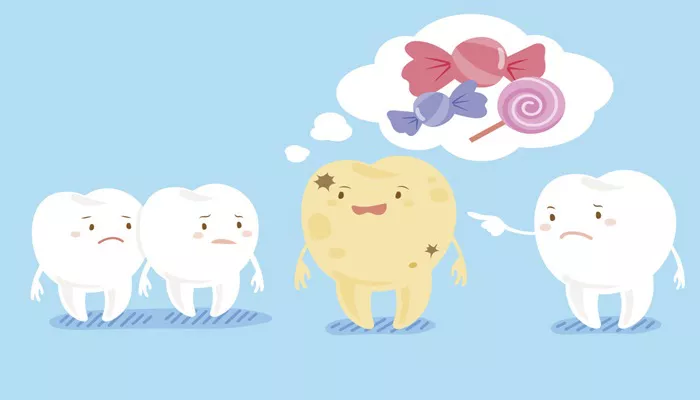Tooth extraction is a common dental procedure that many individuals undergo for various reasons, including severe decay, overcrowding, or periodontal disease. While the extraction itself is often straightforward, many patients experience unexpected side effects afterward. One such issue is the unpleasant odor emanating from the gums. This essay explores the reasons behind the smell, its implications, and how to manage it effectively.
Understanding Tooth Extraction
Tooth extraction involves the removal of a tooth from its socket in the bone. This procedure can be performed for several reasons, including:
Severe Tooth Decay: When a tooth is too damaged to be repaired.
Periodontal Disease: Advanced gum disease can lead to tooth mobility and extraction.
Impacted Teeth: Teeth that do not emerge properly, such as wisdom teeth.
Orthodontic Reasons: To create space for proper alignment.
After the extraction, the body begins a healing process that includes the formation of a blood clot and tissue regeneration. While this process is natural, it can sometimes lead to complications, including the development of a foul odor.
Causes of Odor After Tooth Extraction
1. Infection
One of the most common reasons for a bad smell after tooth extraction is infection. The extraction site can become infected if bacteria enter through the open wound. Signs of infection may include:
- Increased pain or swelling
- Pus or discharge from the extraction site
- Fever
Infections can lead to a condition known as dry socket, where the blood clot fails to form properly or dislodges, exposing the underlying bone and nerves. This condition can be particularly painful and is often accompanied by a foul odor.
2. Food Particles and Debris
After a tooth extraction, the area may trap food particles and debris. If not cleaned properly, these particles can decompose and produce an unpleasant smell. It is crucial to maintain oral hygiene during the healing process to prevent this issue.
3. Necrotic Tissue
The extraction site may also harbor necrotic tissue, which is dead tissue that can develop if the healing process is compromised. This tissue can emit a foul odor as it breaks down. Necrotic tissue often results from inadequate blood supply or infection.
4. Dry Socket
Dry socket, or alveolar osteitis, occurs when the blood clot at the extraction site is lost or fails to form. This can expose the bone and nerves, leading to severe pain and a foul smell due to food debris and bacteria accumulating in the socket.
5. Poor Oral Hygiene
Maintaining good oral hygiene is essential after any dental procedure. If a patient neglects to brush and rinse their mouth properly, bacteria can proliferate, leading to bad breath and an unpleasant smell from the gums.
6. Underlying Medical Conditions
Certain medical conditions can contribute to bad breath and gum odor. Conditions such as diabetes, respiratory infections, and gastrointestinal issues can lead to an increase in bacteria or changes in the body’s chemistry, resulting in an unpleasant smell from the gums.
Managing and Preventing Odor After Tooth Extraction
1. Follow Post-Operative Instructions
After a tooth extraction, your dentist will provide specific post-operative care instructions. Following these guidelines is crucial to ensure proper healing and minimize complications. Key instructions often include:
Avoiding vigorous rinsing or spitting for the first 24 hours.
Eating soft foods and avoiding hard, crunchy, or sticky foods.
Taking prescribed medications as directed.
2. Maintain Oral Hygiene
Good oral hygiene is essential for preventing infections and odors. Patients should:
Gently brush their teeth, avoiding the extraction site for the first few days.
Use an antibacterial mouthwash to help reduce bacteria in the mouth.
Rinse with warm salt water after the first 24 hours to promote healing and reduce the risk of infection.
3. Stay Hydrated
Drinking plenty of water helps keep the mouth moist and can wash away food particles that may contribute to odor. Staying hydrated also supports overall health and healing.
4. Monitor for Signs of Infection
Patients should be vigilant for signs of infection, such as increased pain, swelling, or discharge from the extraction site. If any of these symptoms occur, it is essential to contact a dentist immediately for evaluation and treatment.
5. Avoid Tobacco Products
Smoking or using other tobacco products can hinder the healing process and increase the risk of complications, including infection and dry socket. It is advisable to avoid these products for at least 48 hours after the extraction.
6. Consult with Your Dentist
If the odor persists despite following post-operative care instructions, it is crucial to consult with your dentist. They can assess the extraction site for signs of infection or other complications and provide appropriate treatment.
Conclusion
Experiencing a foul smell from the gums after tooth extraction can be concerning for many patients. Understanding the potential causes, such as infection, food debris, necrotic tissue, dry socket, poor oral hygiene, and underlying medical conditions, is essential for effective management. By following proper post-operative care instructions, maintaining good oral hygiene, staying hydrated, and monitoring for signs of infection, patients can minimize the risk of complications and promote healing. If unpleasant odors persist, seeking professional dental advice is crucial for ensuring a smooth recovery.
Remember, your oral health is an integral part of your overall well-being, and addressing any concerns promptly can lead to a healthier and more comfortable recovery.
Related topics:


